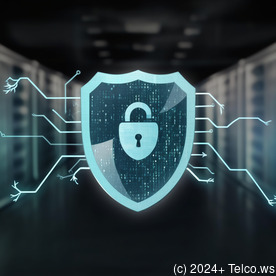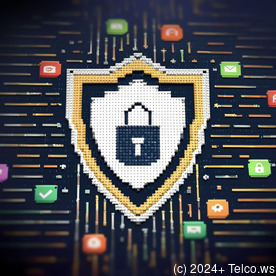
The Importance of Security Training for Staff




Understanding Security Training for Staff
Security training for staff is a crucial element of an organizations risk management strategy, particularly in the context of payment systems that handle sensitive financial information. This training is not an isolated event; rather, it is an ongoing process that evolves along with the ever-changing landscape of cyber threats. The goal is to empower employees with the knowledge and skills they need to recognize and respond effectively to various security threats, such as phishing schemes, malware attacks, and data breaches.
Effective security training programs include practical exercises that simulate real-world scenarios, enabling staff to practice their response to potential security incidents in a controlled environment. By reinforcing the importance of security awareness, organizations can build a culture where every employee realizes their critical role in safeguarding the companys information assets. This proactive approach not only helps mitigate risks but also aligns with industry best practices and compliance requirements.




Economic Perspective
The financial implications of inadequate security training can be severe. In recent years, the cost of a data breach has skyrocketed, with figures estimated at around $3.86 million on average per incident, according to the IBM Security 2020 Cost of a Data Breach Report. These costs encompass not just the immediate financial damage, such as legal fees, fines, and remediation expenses, but also the long-term impacts stemming from a damaged reputation and loss of customer trust.
Conversely, investing in robust security training programs typically costs significantly less than the potential fallout from a data breach. For instance, a well-structured training program might have an upfront training cost of $20,000 annually, which can prevent a single breach from financially crippling an organization. Furthermore, organizations that implement continuous training for their staff tend to see improvements in productivity, employee confidence, and incident response capabilities, which offset the costs of the training itself. This strategic investment fosters a well-informed workforce that can better navigate the complexities of cybersecurity.




Political and Legal Perspectives
The legal landscape surrounding data protection and cybersecurity is constantly evolving. Numerous laws and regulations, such as the General Data Protection Regulation (GDPR) and the California Consumer Privacy Act (CCPA), impose stringent requirements on companies regarding data handling and security measures. Non-compliance can lead to significant financial penaltiesGDPR fines can reach 20 million or 4% of a companys global turnover, whichever is higher.
By conducting security training with a strong emphasis on these legal obligations, organizations not only ensure compliance but also create a workforce that recognizes its legal and ethical responsibilities. Employees trained in compliance-related matters are less likely to inadvertently violate regulations out of ignorance, thus protecting the organization from potential legal consequences. Moreover, building an internal culture that values compliance can lead to enhanced corporate governance and an overall improvement in operational integrity.




Social Perspective
In an era where consumer awareness regarding data privacy is at an all-time high, the social implications of security training cannot be overstated. Customers increasingly choose to do business with companies that demonstrate a commitment to safeguarding their sensitive information. A security breach can have devastating effects not only on a companys bottom line but also on customer loyalty and public perception.
Organizations that prioritize comprehensive security training reflect a culture of accountability and transparency, which resonates positively with consumers. Implementing training programs that empower employees to understand and advocate for data protection increases customer trust and builds stronger relationships. Additionally, involving employees in security discussions can enhance their commitment to organizational values, subsequently improving morale and fostering a sense of ownership in protecting the companys data.




Technological Perspective
As technology continues to advance, payment systems and other organizational tools also evolve, introducing new vulnerabilities along with innovative solutions. Therefore, it is imperative that staff are not only trained on existing security protocols but also engage with up-and-coming technologies like artificial intelligence, blockchain, and advanced encryption techniques. For example, understanding two-factor authentication can deeply influence an employee's ability to secure transactions and sensitive data.
Training programs must incorporate both theoretical knowledge and practical skills. Role-playing simulations, as well as hands-on workshops, can prepare employees to face emerging threats effectively. By simulating real attack scenarios, organizations can evaluate the readiness of their staff and identify any weaknesses in their processes. An adaptable training program that evolves with technological trends is essential for ensuring that employees are well-equipped to defend against sophisticated cyber attacks.




The Core Aspects of Security Training Programs
Components of Effective Security Training
To maximize the impact of security training initiatives, organizations should ensure that their programs include several essential components:
- Regular Updates: Continuous training sessions are necessary to keep employees informed about evolving threats, recent incidents, and technological advancements. For instance, quarterly workshops can address newly discovered malware or phishing techniques that pose a risk to the organization.
- Practical Use Cases: Incorporating case studies and analysis of past breaches provides real-world context and helps employees understand the potential consequences of negligence. This tangible approach makes the training more relatable and impactful.
- Interactive Learning: Utilizing gamification techniques, quizzes, and hands-on exercises can enhance engagement and learning retention. Interactive modules that simulate cyber-attack scenarios allow employees to practice their response in realistic settings, reinforcing their skills and knowledge.
- Assessment and Feedback: Regular assessments help gauge the effectiveness of training while providing opportunities for constructive feedback. By measuring knowledge retention and understanding through tests or role-playing exercises, organizations can identify areas for improvement and tailor future training accordingly.




Conclusion
In summary, security training for staff is not just a box to check; it is a strategic investment that pays dividends in multiple dimensionsfinancially, legally, socially, and technologically. By fostering a culture of security awareness and responsibility, organizations can mitigate risks associated with data breaches and ensure compliance with regulatory requirements.
Moreover, investing in comprehensive security training not only protects sensitive information but also enhances the organizations reputation as a trusted entity in the marketplace. In a digital age where threats are increasingly sophisticated, a proactive stance on security training is vital for organizational resilience, customer loyalty, and long-term success.
Invest in Your Organization's Future
Are you ready to elevate your organizations security posture? Investing in our specialized security training for staff is pivotal to fortifying your defenses against cyber threats. Our comprehensive training program is offered at an investment of $800 and is designed to yield long-term benefits for your organization. The training is tailored to meet the unique needs of your organization, ensuring relevance and effectiveness. Please proceed to our Checkout Gateway , where you can make the payment of $800 following the provided guidelines. Once processed, reach out to us via email, phone, or our site with the payment receipt to finalize the setup for your tailored Security Training Program. Thank you for considering us for your security needs. Your commitment to enhancing security training will ultimately create a stronger, more resilient organization.
